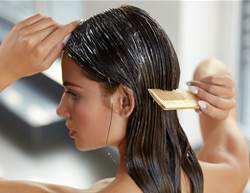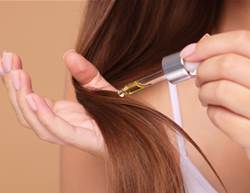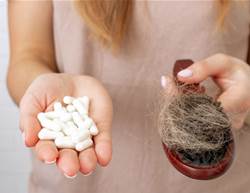Whether you lather up with a shampoo for thinning hair, a formula for grey hair or a budget-friendly chemist pick, the choices are endless. But when it’s time to give your strands a clean, how often should you wash?
“One rule doesn’t fit everyone,” says deramatologist Dr Ife J. Rodney. “Your lifestyle, activity level, hairstyle and hair type all play a role.” While your partner might shampoo most days, spacing out washes could suit you better.
Some people wash whenever it suits and get by fine, but there is a bit of science at play. “You wash your hair to remove dirt and build-up from your hair and scalp,” Dr Rodney says. “If you don’t wash enough, you can develop infections, flakes and greasy hair that feels heavy or looks lacklustre.”
How often should you wash your hair?
This is where your hair type matters. “It’s important for people to follow their own biology and to pay attention to what their hair and scalp may be hinting at,” says dermatologist Dr Mona Gohara. Everyone is different, and every scalp has different needs.
Your scalp’s oil production is key, Dr Gohara says. “If your scalp is oily, you may want to wash it more often. If your scalp is drier, then you may want to wash it less frequently—regardless of hair type.” Because oil production and product residue vary from person to person, you might shampoo every second day, while someone else can get away with washing once a month.
If you don’t have a scalp condition, a simple rule is to wash when you notice build-up, your scalp feels itchy or you’ve been reaching for dry shampoo a little too often.
Want numbers to start with? Below, experts break it down by hair type and offer cleanser tips.
Type 1 or 2, thin straight or wavy hair
Dr Rodney suggests washing two to three times a week if your hair is fine and straight or wavy. Match your cleanser to your scalp: if you’re dry, choose a lightweight hydrating shampoo that won’t weigh strands down. If flakes are the issue, Dr Gohara recommends an anti-dandruff shampoo with actives like selenium sulphide or ketoconazole. If you run oily, add a gentle scalp exfoliant with salicylic acid once or twice a week to break up build-up and help manage excess oil, says trichologist Shab Reslan.
Type 3 or 4, curly or coily hair
For thick or coarse natural curls or coils, once a week often works, says Dr Rodney. Curly scalps aren’t always dry—some get oily too—so let your scalp guide you. “The most important thing is using the right products for your curly or coily hair, making sure you’re bringing in moisture, and that you’re not shampooing every day,” says Ona Diaz-Santin. Depending on how quickly your natural oils travel down the hair shaft, you may prefer alternating a gentle shampoo with a cleansing conditioner or co-wash to keep curls nourished and defined.
Factors that impact how often to wash your hair
If hot yoga has you working up a sweat or you’ve noticed white flakes or extra oiliness on your scalp, you may need to tweak your routine. Sweat and oils can build up on the scalp and push you to wash more often—and that’s fine, as long as you’re not shampooing daily.
“If you’re used to washing once every few weeks or once a week, you may need to wash two or three times a week or wash more regularly because it will prevent that build-up,” says Dr Gohara. White flakes can signal seborrhoeic dermatitis (dandruff), which is your scalp’s cue to wash more often with an anti-dandruff shampoo.
How often should you wash your hair if you’re active and/or sweat a lot?
It’s tempting to shampoo after every sweaty session. “You don’t want a sweaty scalp, but washing your hair every day can cause your hair to dry out, become brittle and break,” says Dr Rodney.
Some hair will tolerate daily or near-daily washes. If yours feels dry, rinse the sweat out between proper wash days. “There are moisturising shampoos that won’t strip your hair as much along with oil treatments you can use,” says Dr Rodney. “But rinsing will remove sweat from your scalp without the stripping effect of shampoo.”
What happens if you wash your hair too much?
Over-washing can backfire. “It can irritate the scalp, and sometimes we’ll see an increase in flaking if you over-traumatise the scalp,” says Dr Rodney. Hair may also turn brittle or overly dry, adds Reslan.
There’s also a rebound effect to consider. Wash too often and the scalp may overcompensate by producing extra oil. “You really have to find the right balance for your hairstyle and hair type,” says Dr Rodney.
The bottom line
Healthy hair starts with a healthy scalp. No two scalps are the same, so learn your signs and set your wash routine to match. If you’ve found a shampoo that suits you and you’re not under- or over-washing, you’re on the right track.










